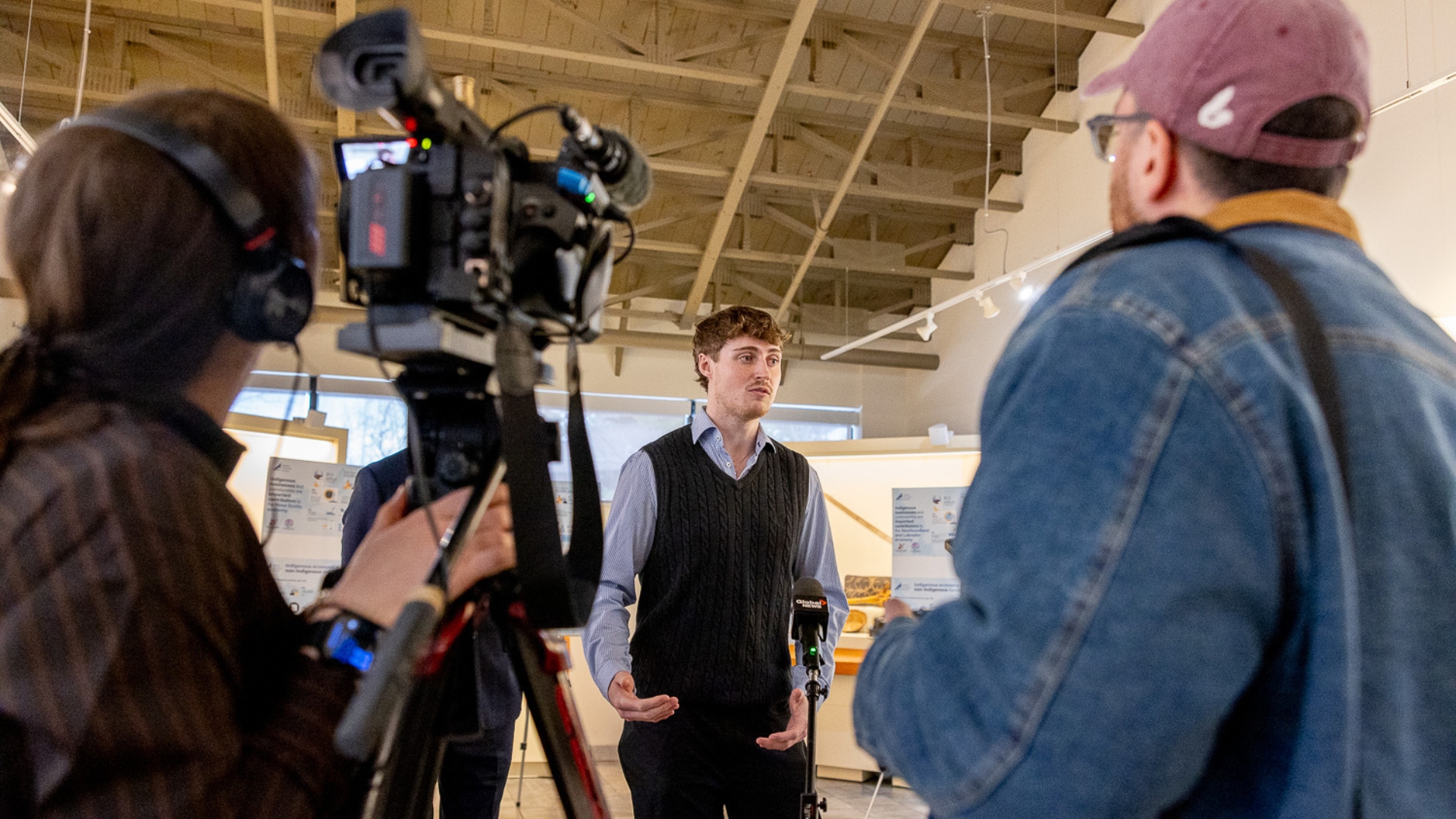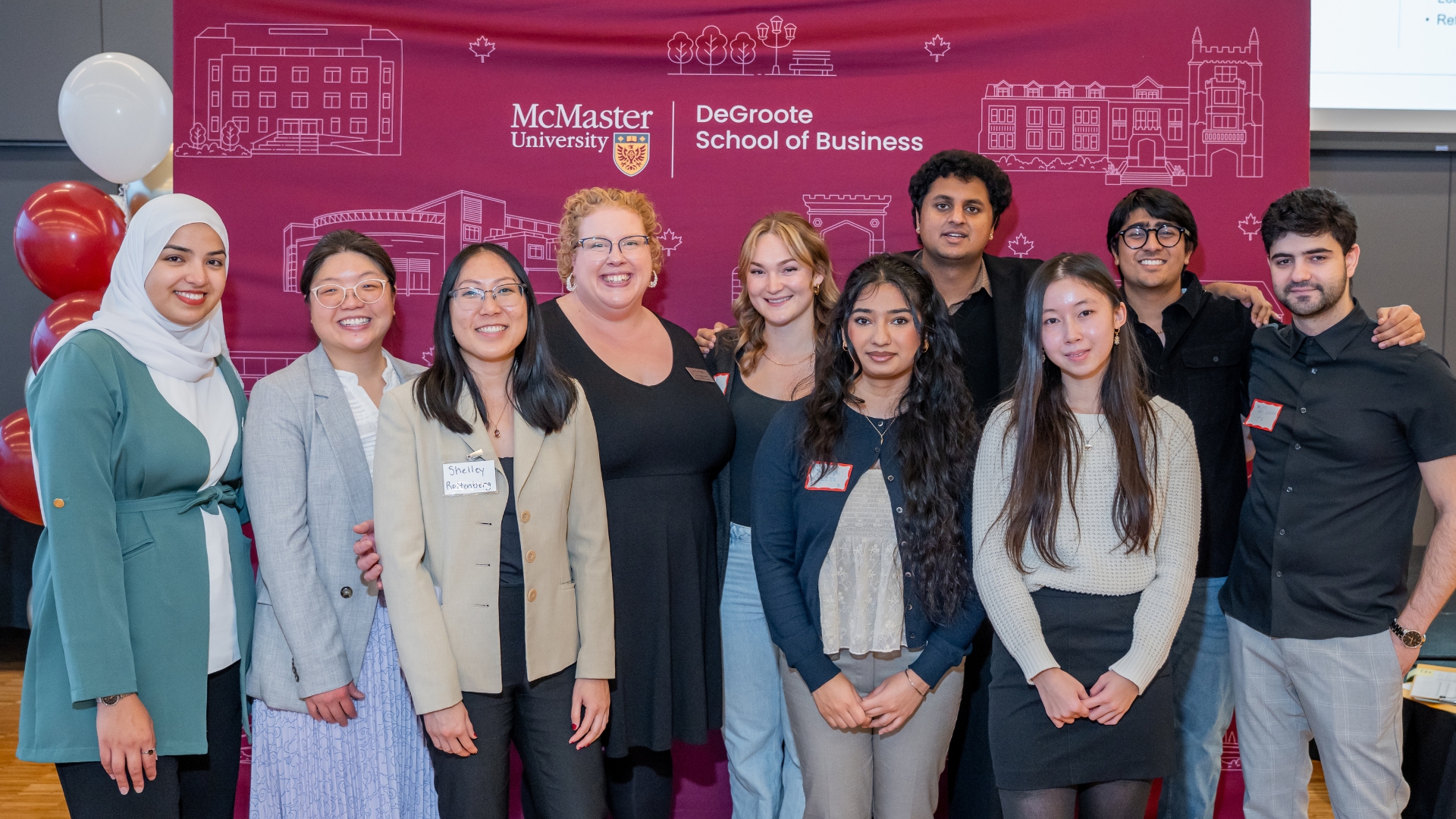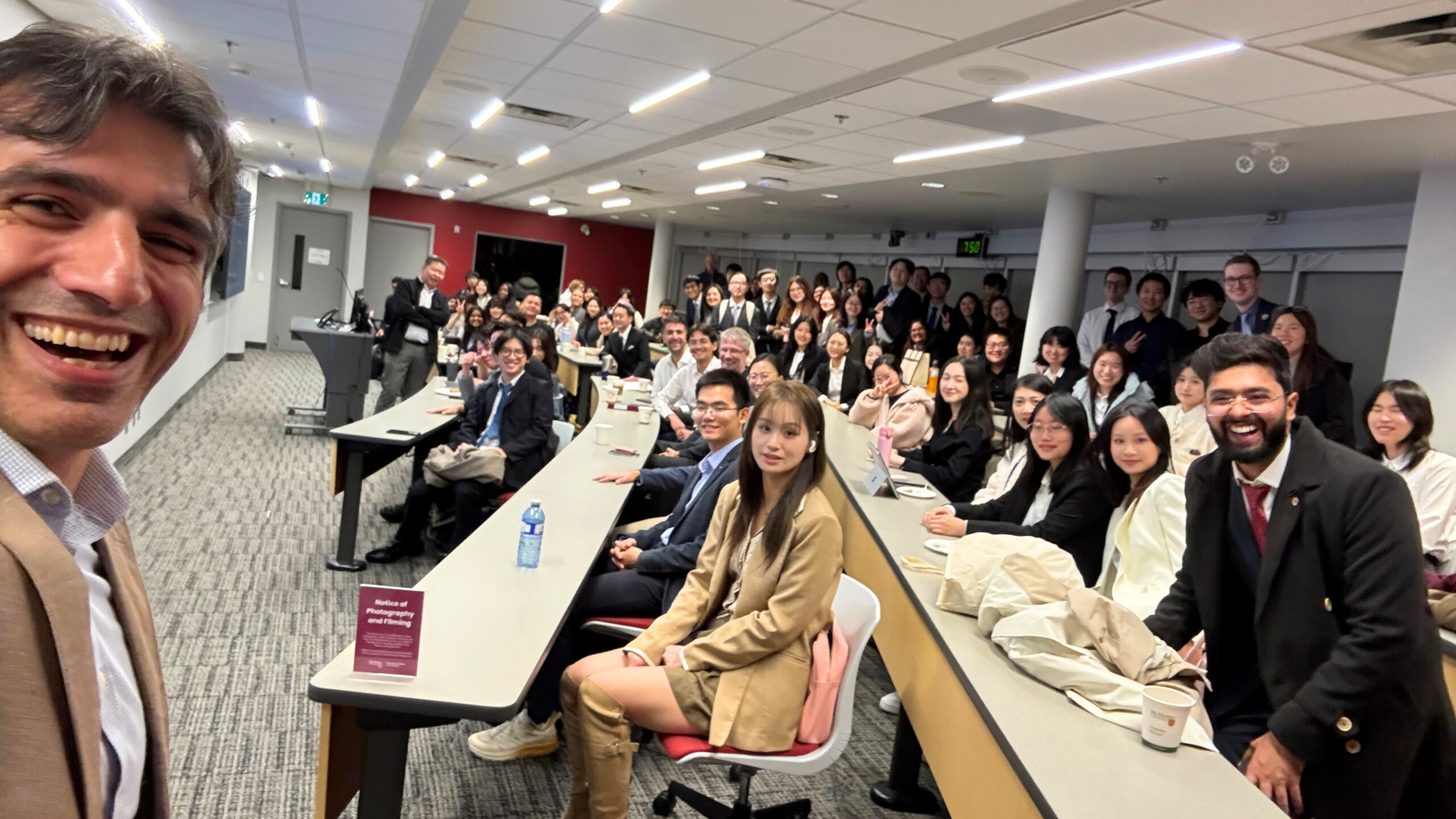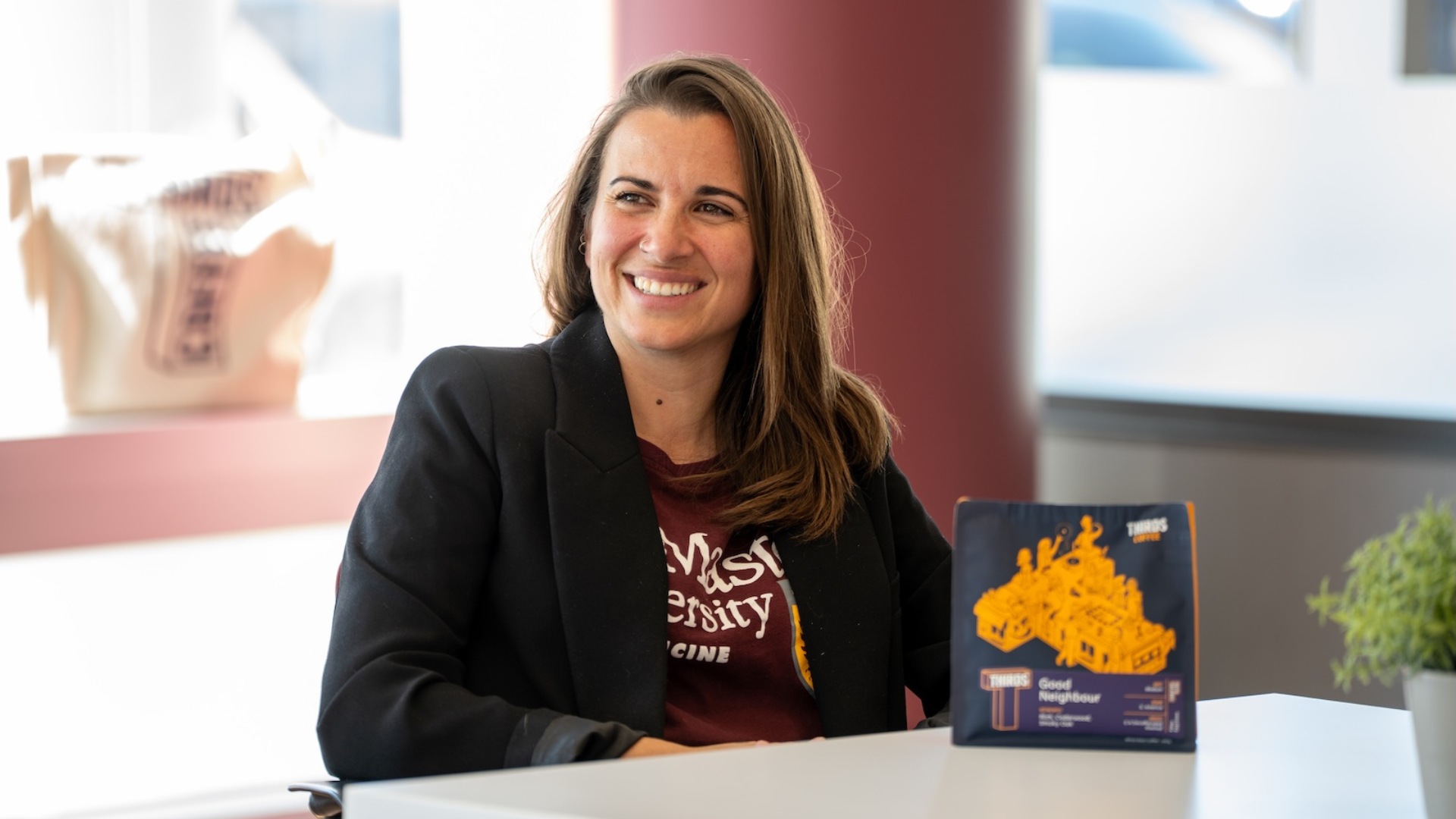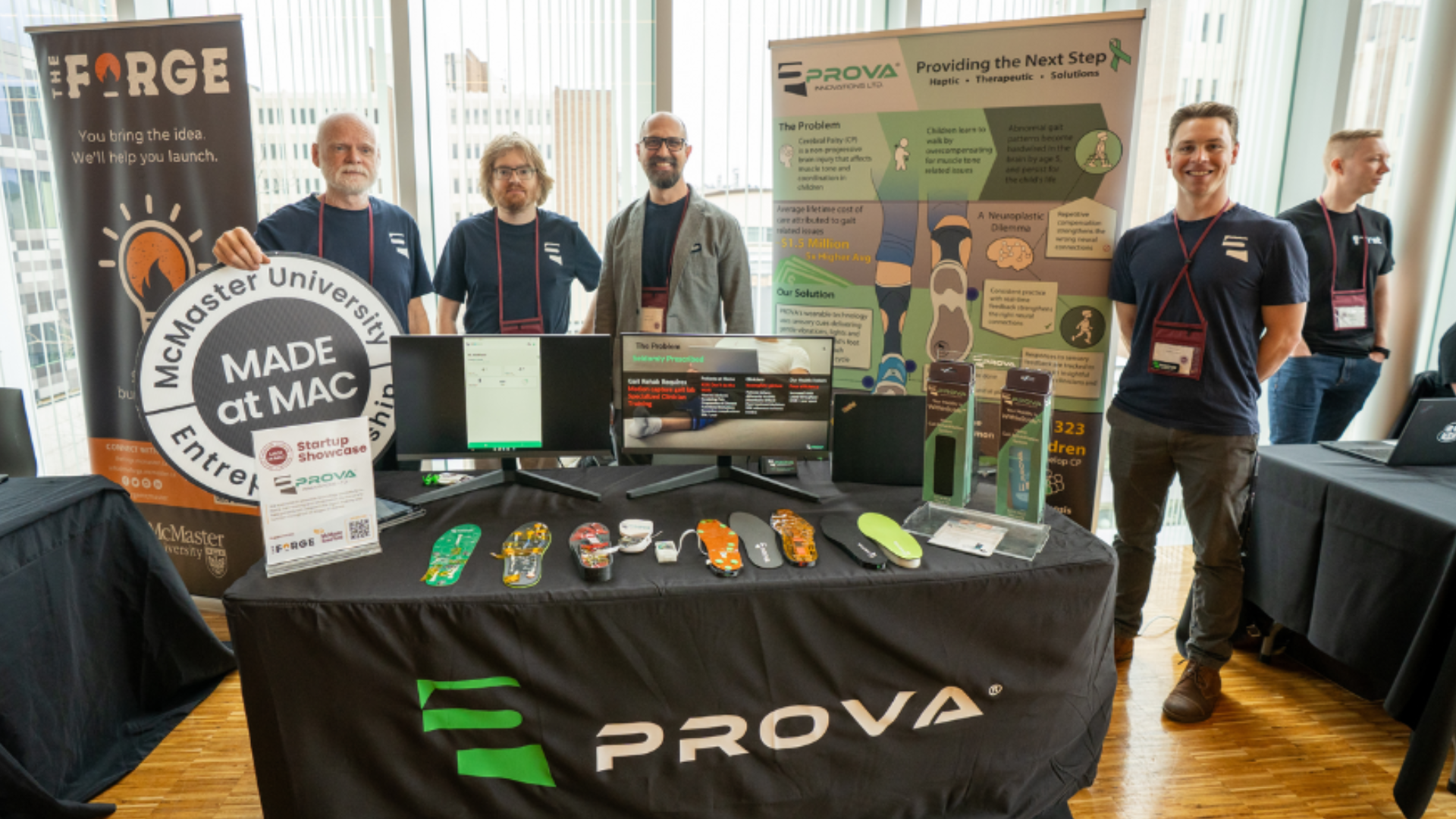McMaster grad and Boardball founder shares advice for aspiring entrepreneurs
November 21, 2024 ·
Contributed by: McMaster University

Amanda Nguyen’s journey from volleyball player to founder of a rapidly growing sports startup recently landed her in the national spotlight with an appearance on the TV show Dragon’s Den — a reality show where entrepreneurs pitch their business ideas to a panel of venture capitalists.
The DeGroote School of Business graduate and founder of Boardball, was pitching her net-free, portable game that blends volleyball and Spikeball (a game that employs some of the principles of volleyball, but with players hitting a ball into a small, circular net close to the ground).
She was successful, walking away with $100,000 from some of Canada’s top investors.
We chatted with Nguyen about the story behind Boardball, her experience on the Dragon’s Den stage and her advice to McMaster students with entrepreneurial ideas:
What inspired you to start your own business?
What drove me to start Boardball was my passion. I grew up playing volleyball, and many of my friends played as well. While I didn’t play competitively, it was definitely a hobby. One day, while on a trip to Mexico, my friends and I were trying to find a volleyball net but couldn’t. So, we made do with a bridge in the middle of the pool and started using it as a partition. People began hitting the ball off the bridge, creating a bounce effect. We played volleyball-style, keeping the rules but with the bridge instead of a net. It was a lot of fun.
When we came back to Toronto, I wanted to recreate that fun experience without needing all the equipment. I had a squash court in my building that nobody used, so we started tinkering with rules and makeshift boards, inspired by games like Spikeball but keeping volleyball’s fundamentals — bumps, sets, spikes — and using a full-size volleyball. The game became a lot of fun, and we played for hours over the next couple of months.
Then the pandemic hit, and they told us we couldn’t play there anymore. That’s when I unknowingly built the portable version of Boardball, which became the prototype.
I didn’t realize I was creating a prototype at the time — I was just trying to solve a problem.
We took it outside for the first time and played in public, and the video went viral. That night, we incorporated.
What was it like to be on Dragon’s Den?
I found it really hard, but fun. Preparing for the Den, everyone always says to know your numbers and be really prepared, which I did. But what was really challenging was coming prepared with how you want to share your vision, your product or service, how you developed it from the beginning, and the struggles and vulnerabilities you faced. Beyond the numbers, they really want to hear your story and understand more about you.
Being on TV was also a new experience for me, as someone who’d never done that before, having to do it all under pressure with cameras around you. They also asked hard questions, but I understood they were just trying to prepare you for real-world challenges and figure out how far you’d take your business.
Although I found that part hard and challenging, the fun part was having the unique opportunity to pitch and grow your business in front of five or six very incredible entrepreneurs and get direct advice from them. This rare and unique opportunity made it a lot of fun.
How did you prepare for your pitch?
Speaking about how the business is doing and what we’re trying to do wasn’t daunting, but actually nailing a pitch to go on air and pitch flawlessly was the part I was most afraid of.
However, I had been doing a lot of physical education trade shows, especially in the U.S. market. At these trade shows, you pitch your product to physical education teachers, administrators and districts, which helped me practise my pitch without realizing it. And when I actually got to pitching, that actually became the easy step for me.
A couple of years ago, I also joined The Forge and they prepared me for a pitch competition with Lion’s Lair, which helped a lot. We went in for practice and ended up winning both the People’s Choice Award and 1st place, so that really prepared us well.
What specific experiences or courses at McMaster were most valuable in your journey?
The courses at McMaster didn’t just inspire my journey, they prepared me for it. As they say, luck is when opportunity meets preparation, and that’s exactly what happened. I had the opportunity with a great game that people loved, but I didn’t initially intend to make it anything more than that.
Learning business concepts like accounting and finance at McMaster gave me the skills to take the risk and pursue it. I knew the key functions and departments needed to run a business, and that knowledge was crucial.
And of course, my marketing background from McMaster was essential. I studied marketing and joined the McMaster Entrepreneurship Association, where I got to apply some of those skills, which have been really helpful in building Boardball.
What advice can you give to current or future entrepreneurs looking to turn their vision into a venture?
When you start out trying to build something, you think it has to be sort of a secret. You feel like if you talk about your big idea, someone will take it. But the truth is, it takes a lot of work to actually bring that idea to life. If you’re truly the one to bring it to life, you have to talk about it, you have to get started. So, I’d say, if you have an idea, just get started. Just have those conversations, start asking people for feedback, and don’t be afraid to put your idea out there.
I find that people do hesitate — they quietly work on something. But the companies that do well are the ones that just get going. They put themselves out there, ask the right questions, connect with the right people, and actively engage in their industry and community. They’re really trying to be the first to bring a solution to the market.
That’s what helped us too. We did a Kickstarter campaign, which kept us accountable to deliver our product. We were like, ‘We have this idea. Will you fund it? And we will make it happen.’ And from there you just have to do it.
What keeps you motivated?
If you’re going to build a business, you have got to really believe in it. And if you believe in its benefits, if you believe in its user experience — whatever the case — you’ll see the value in it. I find that with Boardball, it’s so fun for me because, first of all, it’s a game that I get to play with friends and family and on beaches and in parks.
Just being a part of contributing to the community in such a fun way, and the byproduct is that you’re also getting healthy and active — yeah, that totally makes it for me.
Now that we’re in physical education, teaching young kids and getting them excited to play volleyball, it’s rewarding. Growing up, you had these monstrous nets, and it was intimidating. Teaching volleyball is one of the hardest sports in gym class, and we’re lowering that barrier. We’re making it more accessible, keeping it fun, and building communities. All of that together is what motivates me to keep pushing forward for the sport.


